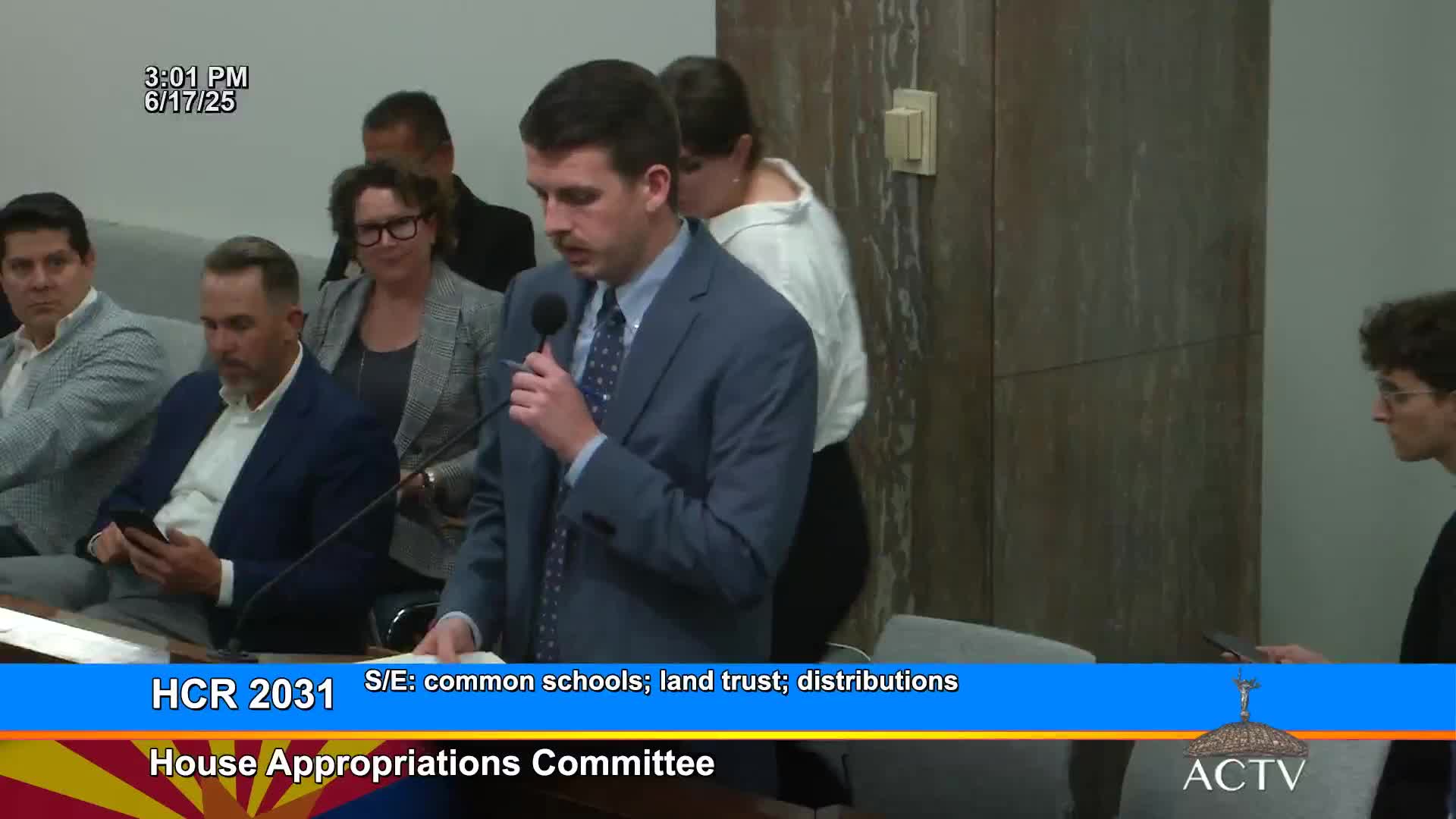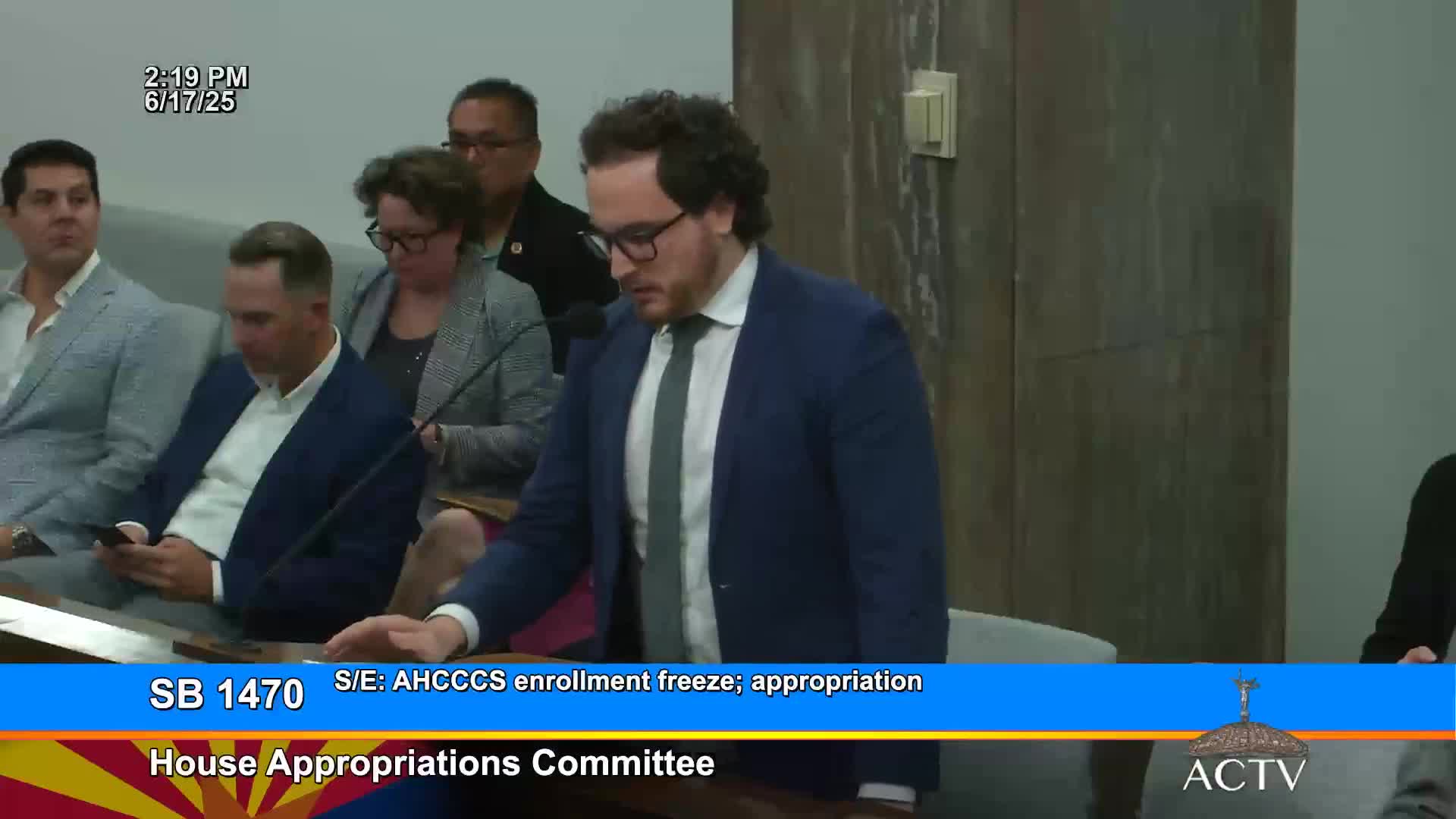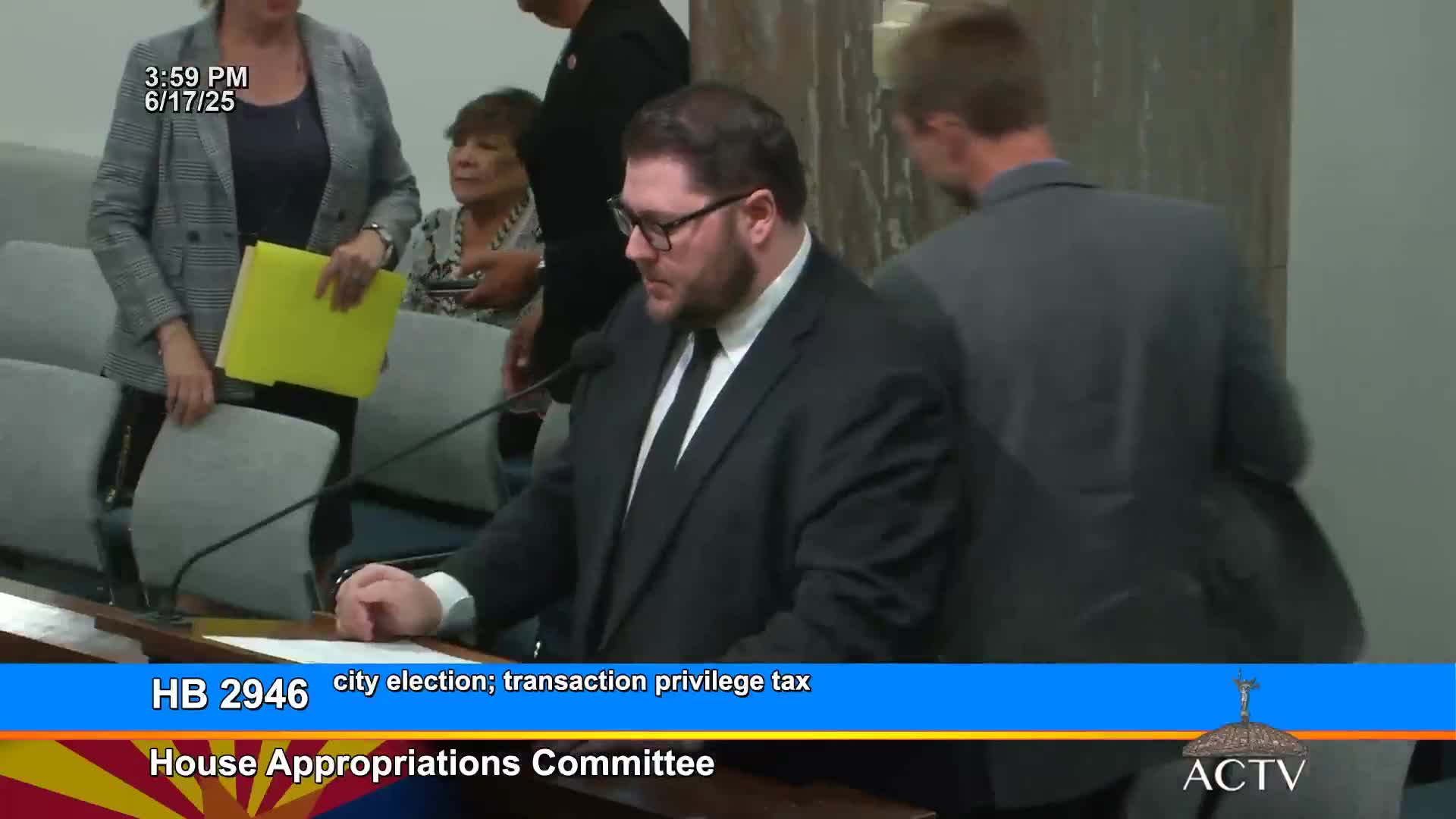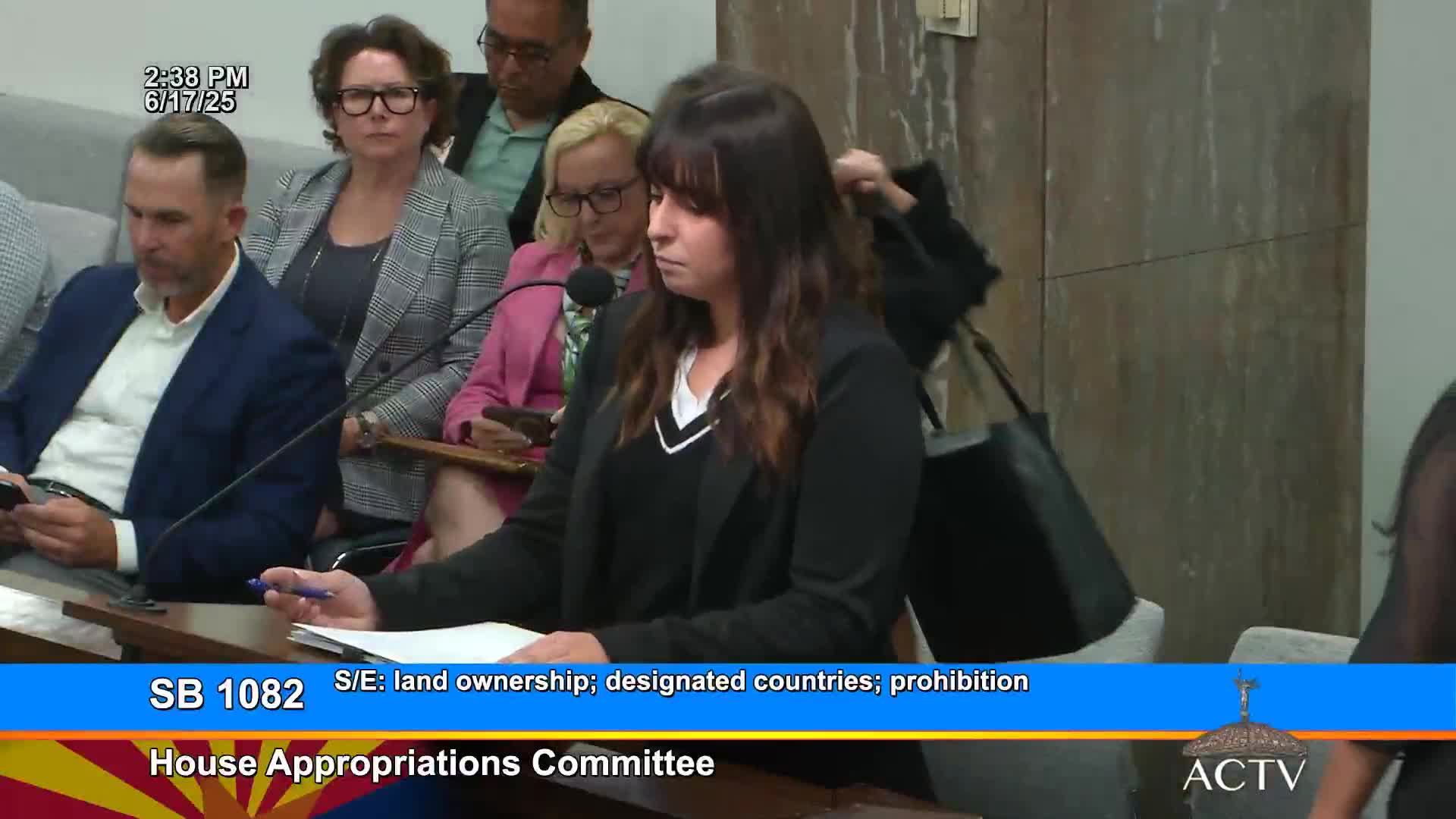Article not found
This article is no longer available. But don't worry—we've gathered other articles that discuss the same topic.

Appropriations committee advances competing measures to lock Prop 123 distribution and direct funds to teacher pay; educators warn of exclusions

Committee backs temporary freeze on Medicaid expansion enrollments, trims state share by $108 million

Winslow cleared to hold special election to renew 1% transaction privilege tax that funds local hospital

